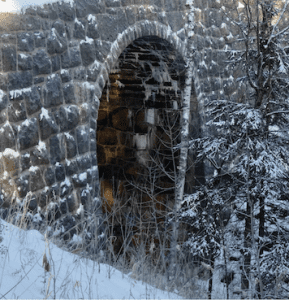 In a recent fine talk, Absolute Refuge, Jiryu Mark Rutschman Byler shares the practice of taking refuge in evil Buddhas. We had a lively conversation about this during our last Monday night Dogen study here. Turns out it’s a theme that riles some folks up.
In a recent fine talk, Absolute Refuge, Jiryu Mark Rutschman Byler shares the practice of taking refuge in evil Buddhas. We had a lively conversation about this during our last Monday night Dogen study here. Turns out it’s a theme that riles some folks up.
Gentle Jiryu’s riling talk, by the way, is one of the audio dharma talks that we’ll use in the Vine of Obstacles: Online Support for Zen Training.
Jiryu has studied an old Buddhist school in China, the Three Stages Sect, who seem to have been interested in how to live in peace and harmony. And they noticed how attachment to our views creates conflict and discord. They came to the opinion that all opinions are false, as a practice for cutting through attachment to our own limited perspectives.
But if all views are false, where can we go for refuge? What is a reliable source of stability, strength, and sanity? The Three Stages Sect identified the teachings of the historical Buddha, the universal Buddha, and evil Buddhas as fitting sources for refuge.
The first two, the historical and universal Buddhas, go well with what we usually think of as objects of refuge but taking refuge in evil Buddhas just might sound rather messed up. As one person said, “‘Evil Buddhas’ is an oxymoron. And refuge, to me, indicates a place of safety and security… as in a circle of protection. Why would I let evil Buddhas into my circle of protection?”
In the same vein, during Catholic confirmation, if memory serves, the bishop asks, “Do you renounce Satan and all his works?”
If anybody in my confirmation cohort had been a member of the Three Stages Sect, they’d have hollered, “No way, dude! I take refuge in Satan, too.”
So this is a teaching that is intended, I believe, to rile us up, to disclose our one-sidedness and free us from being Buddhist fundamentalists – imv, really important for our times.
If “evil Buddha” is too provocative, consider opening up that category so that evil includes delusion and death and difficulty. Consider that the evil Buddha isn’t out there somewhere but right here. Just this person. And even when the so-called other is before us, who is seeing this “evil Buddha”?
See, for example (I hope), my recent post about what to do when life is disrupted (click here) for a practical, personal way that this perspective can be practiced.
This refuge-in-evil-Buddhas teaching in various forms recurs throughout the Buddhist tradition, including in Dogen, Shinran, and the Vimalakirti Sutra (see the end of the this post for a few excerpts of what they had to say). You might sit calmly and reflect deeply about this. After all, as I said, it’s a recurring theme, so just maybe there is something important for us here, too.
It is my unreliable opinion that there is.
One of the evil sides of refuge in evil Buddhas, (otherwise known as entering fully into Mara, or the way as going the wrong way, or being an evil person – see below for the excerpts I’m referencing here), is that we might use these teachings to justify our own harmful actions of body, speech, and thought, and to condone the negative actions of others.
That’s really not the point, although, in a way it supports the Three Stage’s contention – all perspectives are unreliable.
Jiryu says about the Three Stages Sect, “It’s not that they liked evil Buddhas. [The Three Stages Sect] were a great source for good, they really helped people, and they lived by all the rules that Buddhists have always lived by to be most kind and most compassionate…. They realized that the only place to find real reliable refuge is right here, so if there is an evil buddha in front of me, that is my refuge…. If I’m not finding refuge in what’s here, then how will I find it anywhere?”
Jiryu also mentions a really hinky test that the founder of this school advocated for determining whether a donor should give gifts to a community. S/he should ask, “Is there anyone among the assembly who breaks their vows?”
If the answer is “No sir! We are a pure community of righteous practitioners,” then you shouldn’t give to that group because the group is “…excluding from the embrace of refuge those who break their vows,” as Jiryu put it.
As a breaker of vows, sinner, and broken-down old guy, I think that’s so tender.
Comments welcome and okay. Here are the excerpts:
1. Dogen, Thirty-seven Conditions Contributing to Bodhisattva Practice:
When a demon becomes a buddha, it exerts its demon-ness, breaks it, and actualizes a buddha. When a buddha becomes a buddha, he/she exerts his/her buddhahood, strives for it, and actualizes a buddha. When a human being becomes a buddha, he/she exerts his/her human nature, trains it, and actualizes a buddha. You should thoroughly understand the truth that possibilities lie precisely in the ways various beings exert their respective natures.
2. Vimalakirti Sutra, Chapter 8, The Family of the Tathagathas
Then, the crown prince Manjusri said to the Licchavi Vimalakirti, “Noble sir, how does the bodhisattva follow the way to attain the qualities of the Buddha?”
Vimalakirti replied, “Manjusri, when the bodhisattva follows the wrong way, he follows the way to attain the qualities of the Buddha.”
Manjusri continued, “How does the bodhisattva follow the wrong way?”
Vimalakirti replied, “Even should he enact the five deadly sins, he feels no malice, violence, or hate. Even should he go into the hells, he remains free of all taint of passions. Even should he go into the states of the animals, he remains free of darkness and ignorance. When he goes into the states of the asuras, he remains free of pride, conceit, and arrogance. When he goes into the realm of the lord of death, he accumulates the stores of merit and wisdom. When he goes into the states of motionlessness and immateriality, he does not dissolve therein.
“He may follow the ways of desire, yet he stays free of attachment to the enjoyments of desire. He may follow the ways of hatred, yet he feels no anger to any living being. He may follow the ways of folly, yet he is ever conscious with the wisdom of firm understanding.
3. Shinran’s Tannisho: Even the good person attains birth in the Pure Land, how much more so the evil person.
But the people of the world constantly say, even the evil person attains birth, how much more so the good person. Although this appears to be sound at first glance, it goes against the intention of the Primal Vow of Other Power. The reason is that since the person of self power, being conscious of doing good, lacks the thought of entrusting the self completely to Other Power, he or she is not the focus of the Primal Vow of Amida. But when self-power is turned over and entrusting to Other Power occurs, the person attains birth in the land of True Fulfillment.
The Primal Vow was established out of deep compassion for us who cannot become freed from the bondage of birth-and-death through any religious practice, due to the abundance of blind passion. Since its basic intention is to effect the enlightenment of such an evil one, the evil person who is led to true entrusting by Other Power is the person who attains birth in the Pure Land. Thus, even the good person attains birth, how much more so the evil person!











